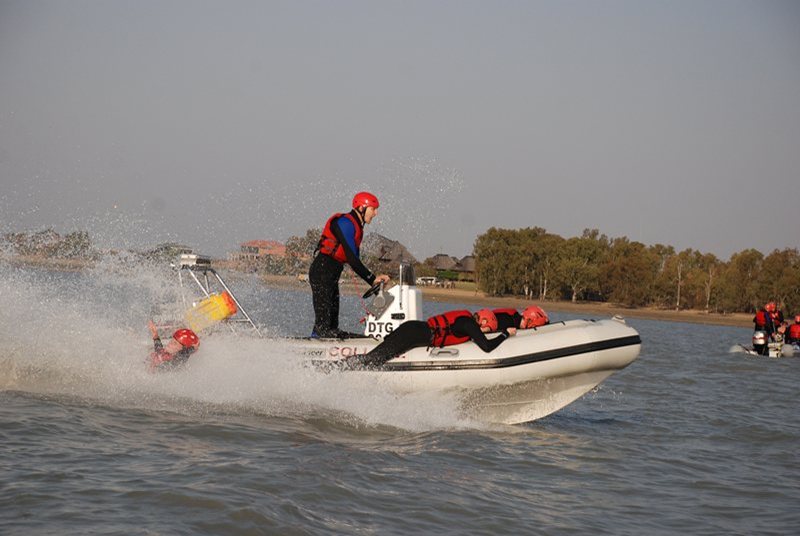
Prospective students should be aware that the B(EMC) programme is taxing in many ways. Each student will be stretched to their limits in terms of mental capability, emotional pressure and physical challenges.
Training
A high degree of fitness is required throughout the programme to encourage a healthy lifestyle that enables the student to do what is required of an Emergency Care Practitioner (ECP). Training sessions will be held every morning and students will have access to the gym, swimming pool and showers.
Being an ECP is not just another job that can be achieved by anyone. It requires individuals that comprehensively understand what the job requires. It will be in the best interest of any prospective student to spend time with an ECP in the workplace. Gaining experience of the variety on circumstances ECPs are exposed to is highly recommended.
During the programme, students will be expected to cultivate the necessary attributes and values that constitute the making of an excellent ECP. Professionalism, altruism, maturity, respect, discipline, punctuality, endurance, uniformity, being well-groomed and many more values, will be addressed during the programme.
Uniform and equipment
It will be expected of students to procure a predetermined list of uniform and equipment that will proudly serve to distinguish them as Emergency Care Practitioner Students. The list of uniform and equipment has been carefully selected so that the student can wear the appropriate attire to the different practical sessions.
Practical sessions
Many hours are spent during the programme in the workplace. This can either be at an ambulance service, a hospital unit or at a voluntary organisation. While at the workplace, students work under the supervision of a qualified ECP, a doctor, a nurse or a rescue specialist. The experience gained will ensure that students become acquainted with real life situations and how to deal with adverse situations from as early as possible.
Every student must complete a workbook that reflects on the lessons learnt and skills mastered during a shift. At least one 12 hour shift will be spent in the workplace every week. Some of the time during the holiday breaks could also be assigned to working shifts. Students will be expected to use their own transport to travel to practical areas. All practical areas will be in the Port Elizabeth Metro area.
Being an Emergency Care Practitioner is a great calling. Although it is extremely challenging, it is equally rewarding.